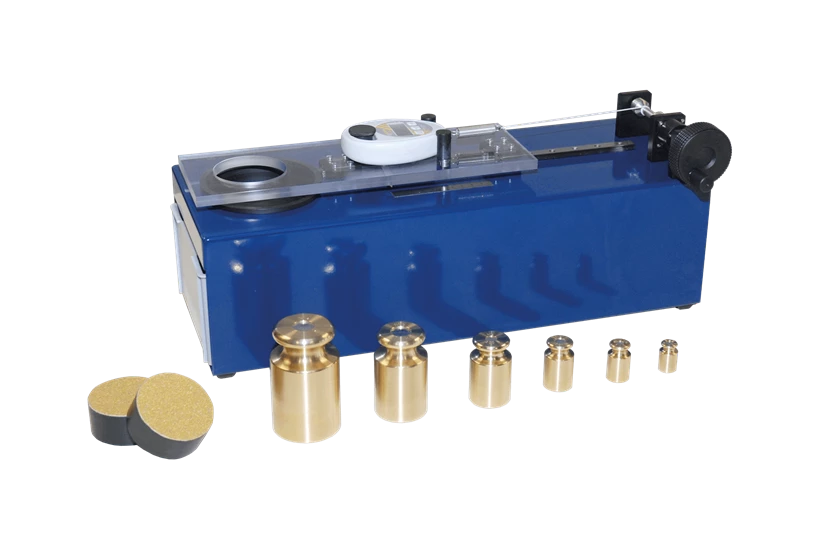
The surface shear stress apparatus manually measures top soil friction of an undisturbed soil sample and displays the results digitally. The equipment is suitable for soil samples with a diameter of 3.94 (100 mm).
The determination of very thin soil layers, such as soil crusts, requires very sensitive and very accurate equipment. In addition, the equipment should allow very small vertical stress application during measurement. Our surface shear test apparatus meets these requirements. Included in the set are:
The apparatus was developed in cooperation with Christian Albrechts University Kiel in Germany, a leading institution in soil compaction research. Read the interview with Prof. Horn of Kiel University for more information.
Shear strength measurement
Altered soil functions, in particular reduced hydraulic conductivities and impeded aeration, influence the topsoil layers. This has an important effect on vulnerability to erosion, in particular.
Soil stability is a decisive factor for erosion risk reduction. Soil stability is determined by shear resistance or the angle of internal friction, depending on or varying through soil-water pressure and humus content. Soil shear resistance will increase with increasing organic carbon content. Air-dry soil state samples will result in the smallest resistance to shearing in comparison with the range of water content applied. The effect of bulk density on soil shear strength depends on the water content and is distinct for a higher range of vertical loads.
Applications
User groups
Specifications - weight
Weight container: for about 40 g - 1.08 hPa
| Surface shear test apparatus | |
|---|---|
| Soil sample rings | diameter 4.06 x 3.94 in (103 x 100 mm), height 1.18 in (30 mm) |
| Shear container diameter | 2.7 in (68 mm) |
| Roughness abrasive | P-40 (special proven quality) |
| Shear speed | manual |
| Shear force | Range digital scale: 0 – 5000 g |
| Resolution | 5 g |
| Dimensions | 19.9 x 9.5 x 8.3 in (50.5 x 24 x 21cm) |
| Weight total set | approximately 22 lbs (10 kg) |